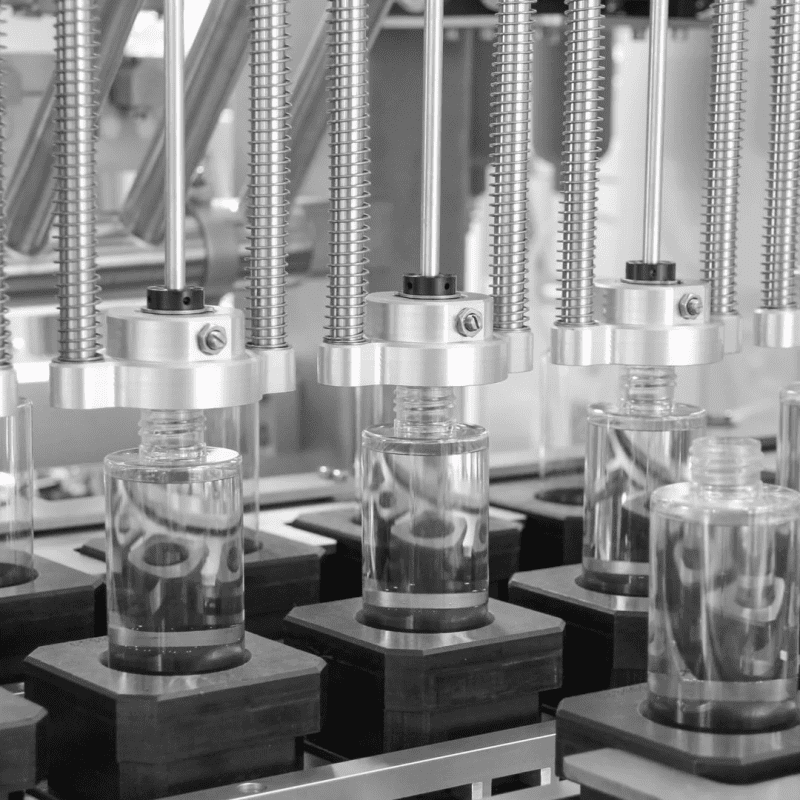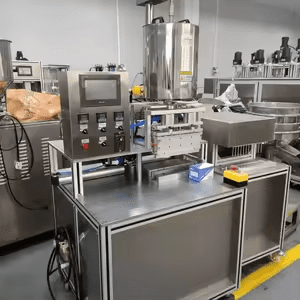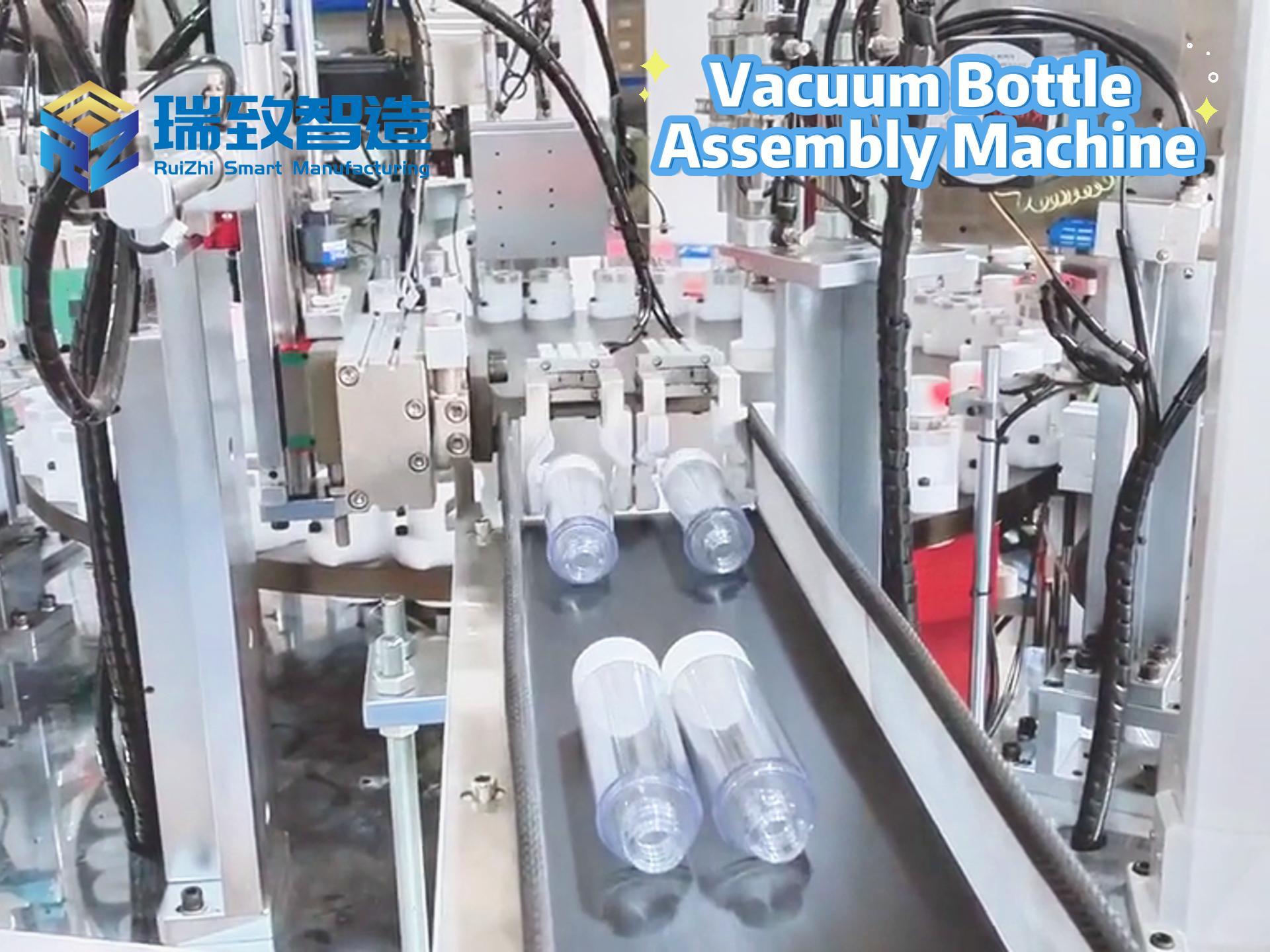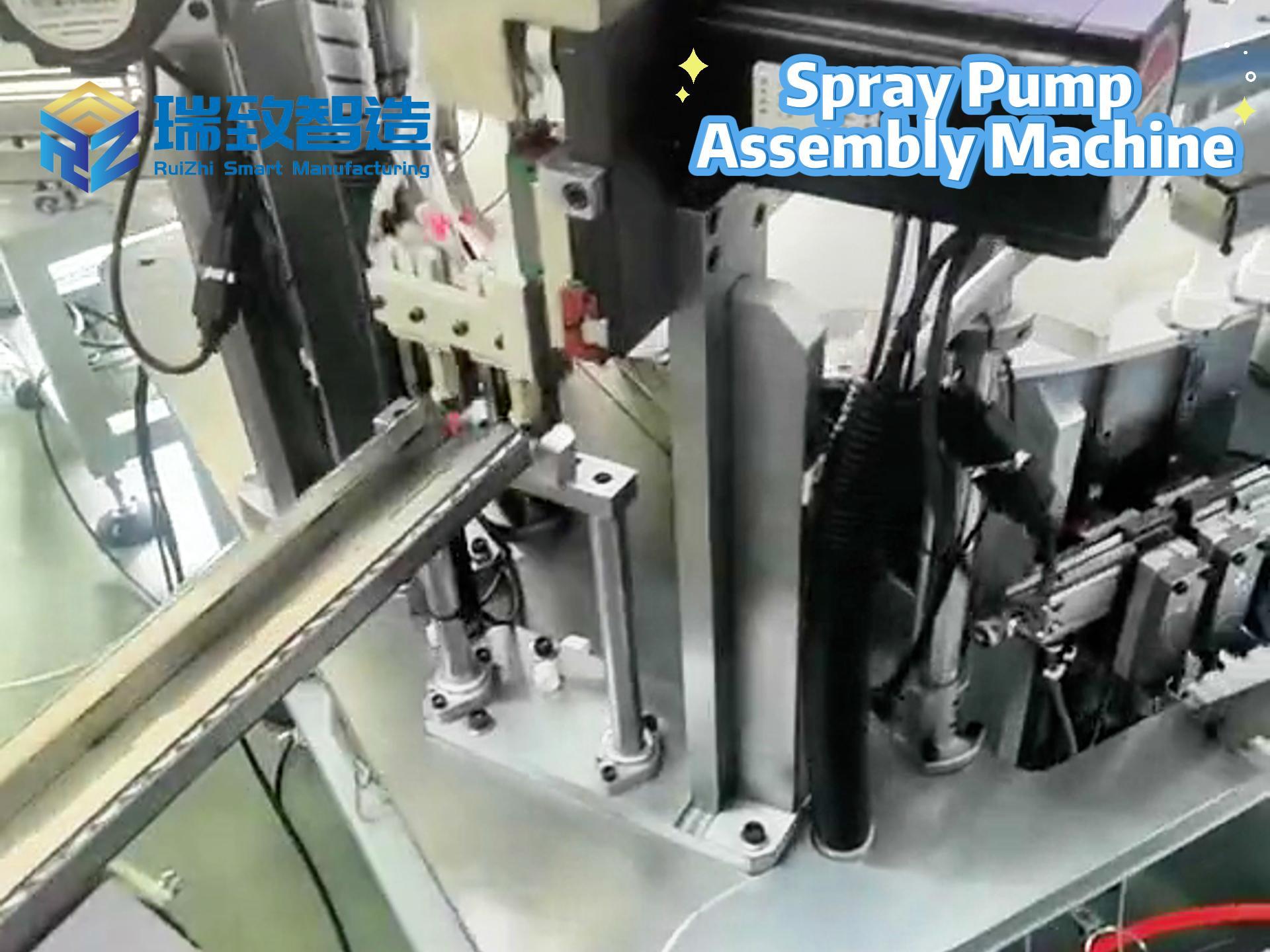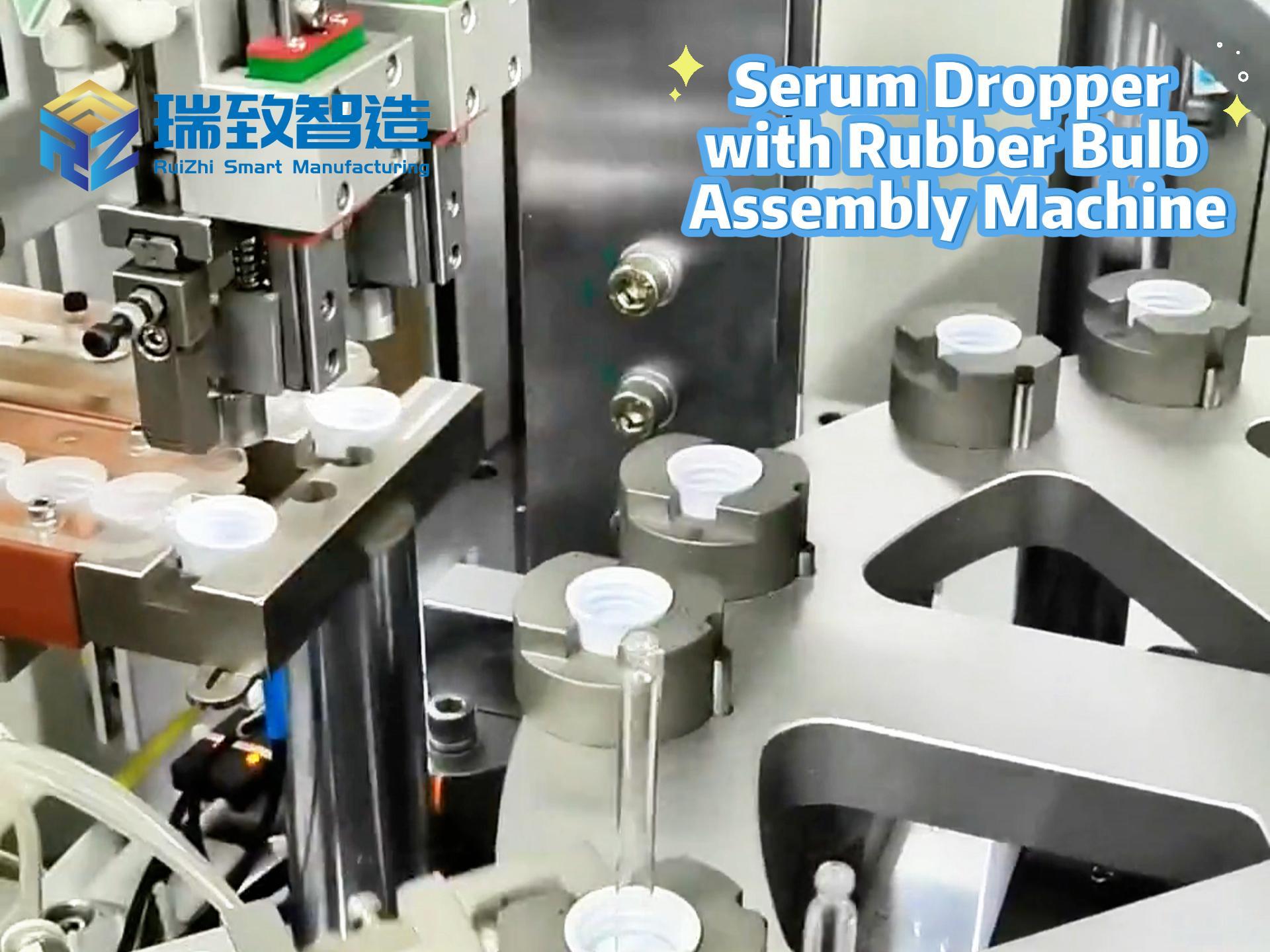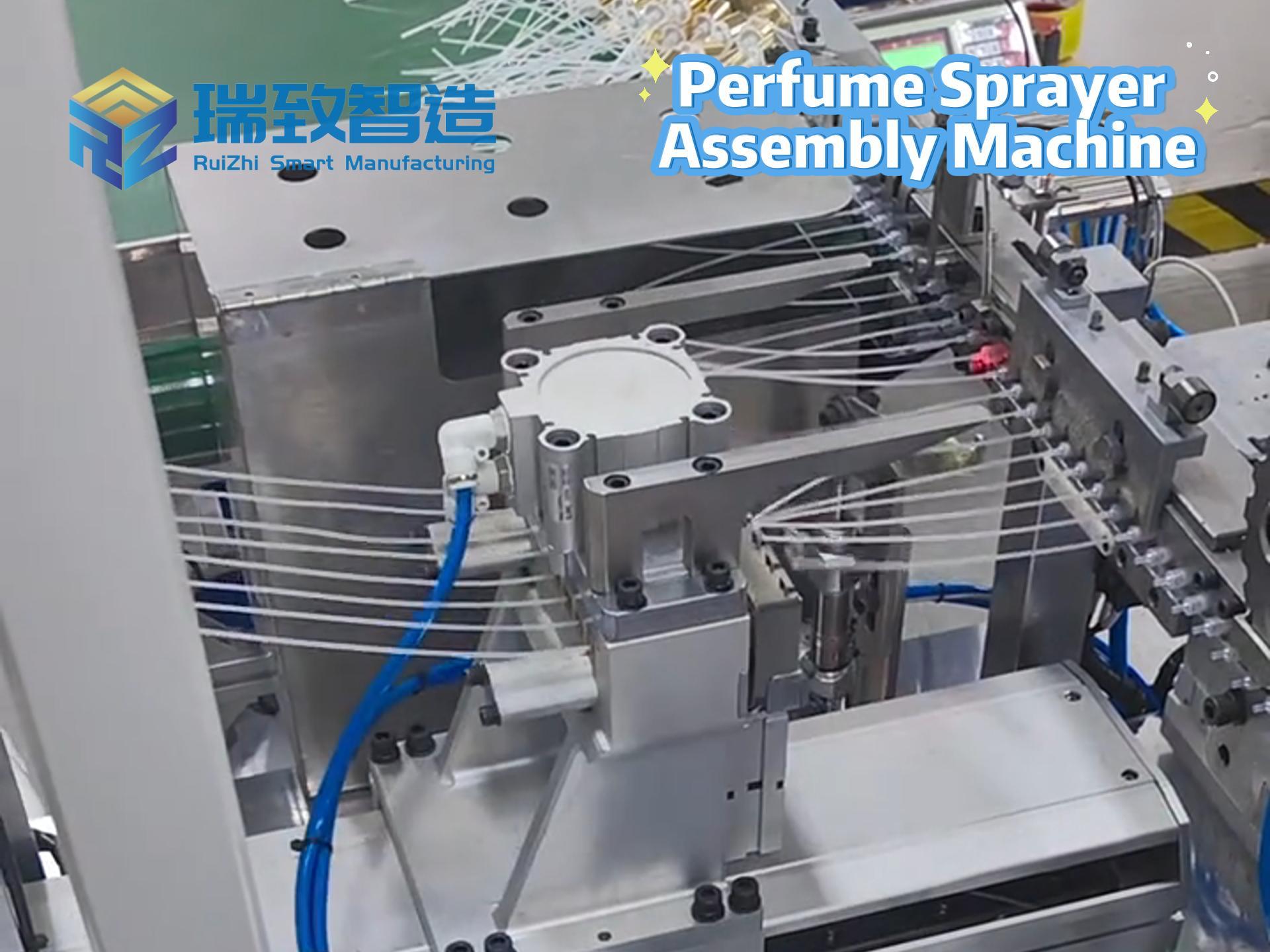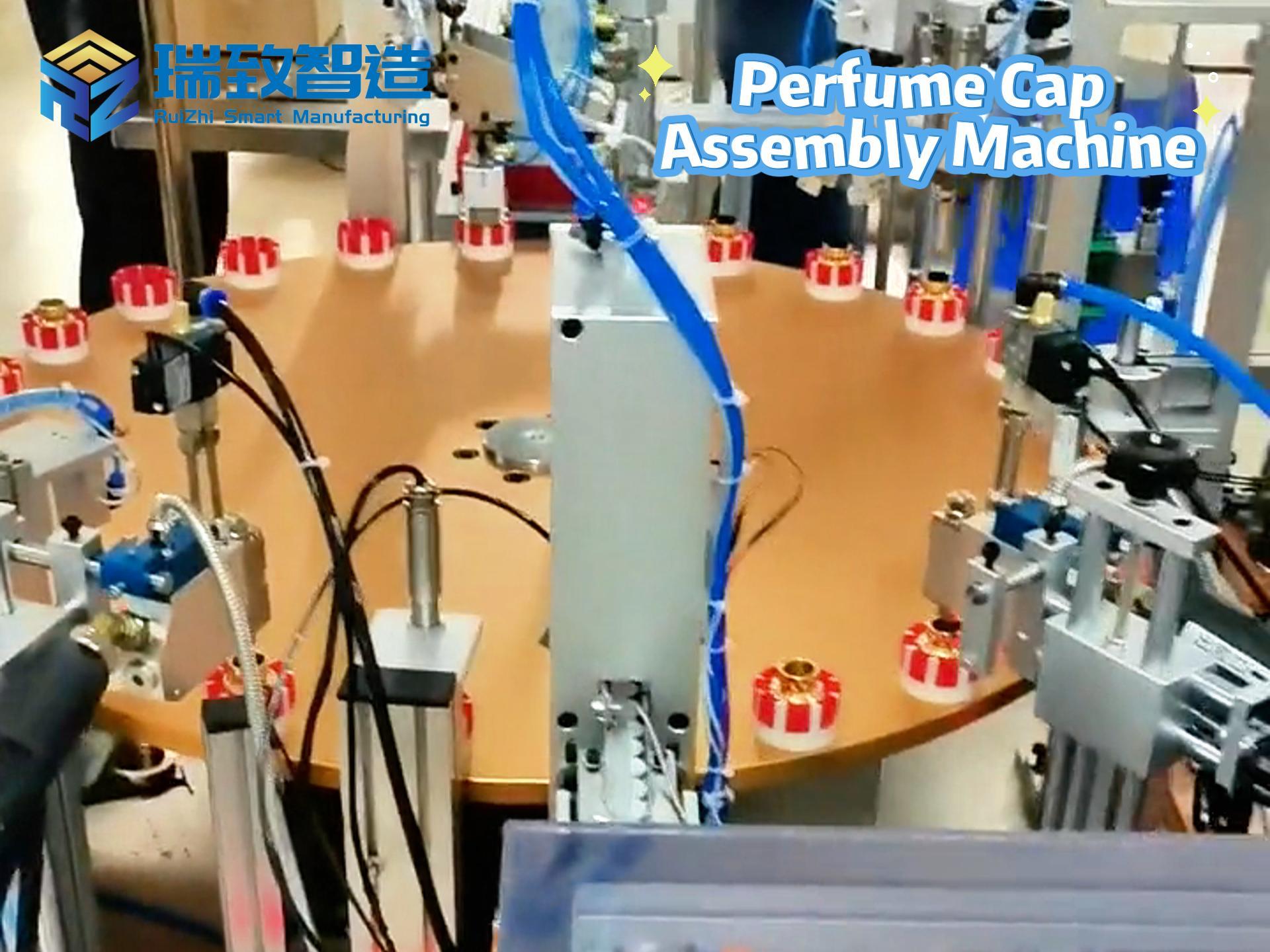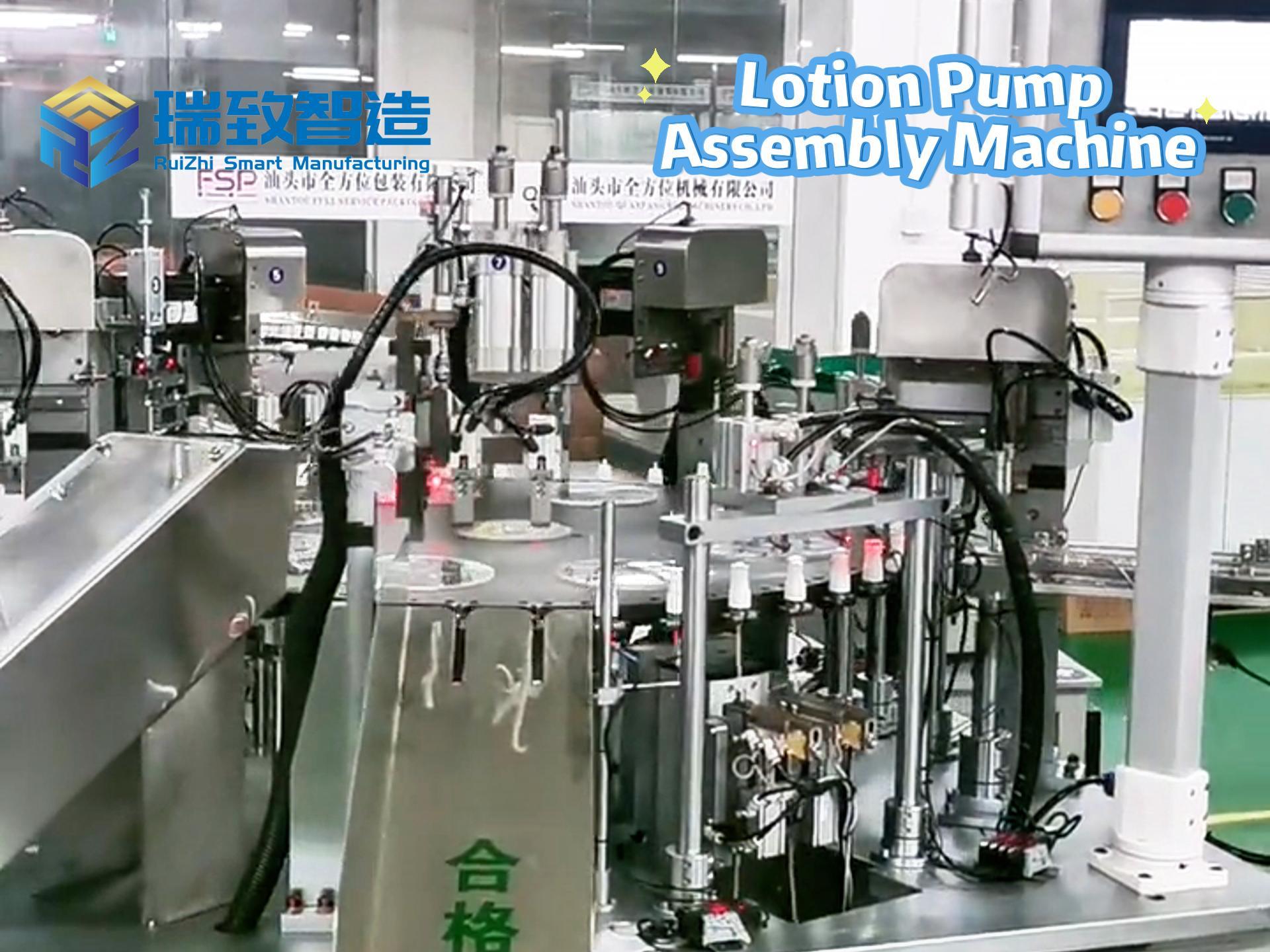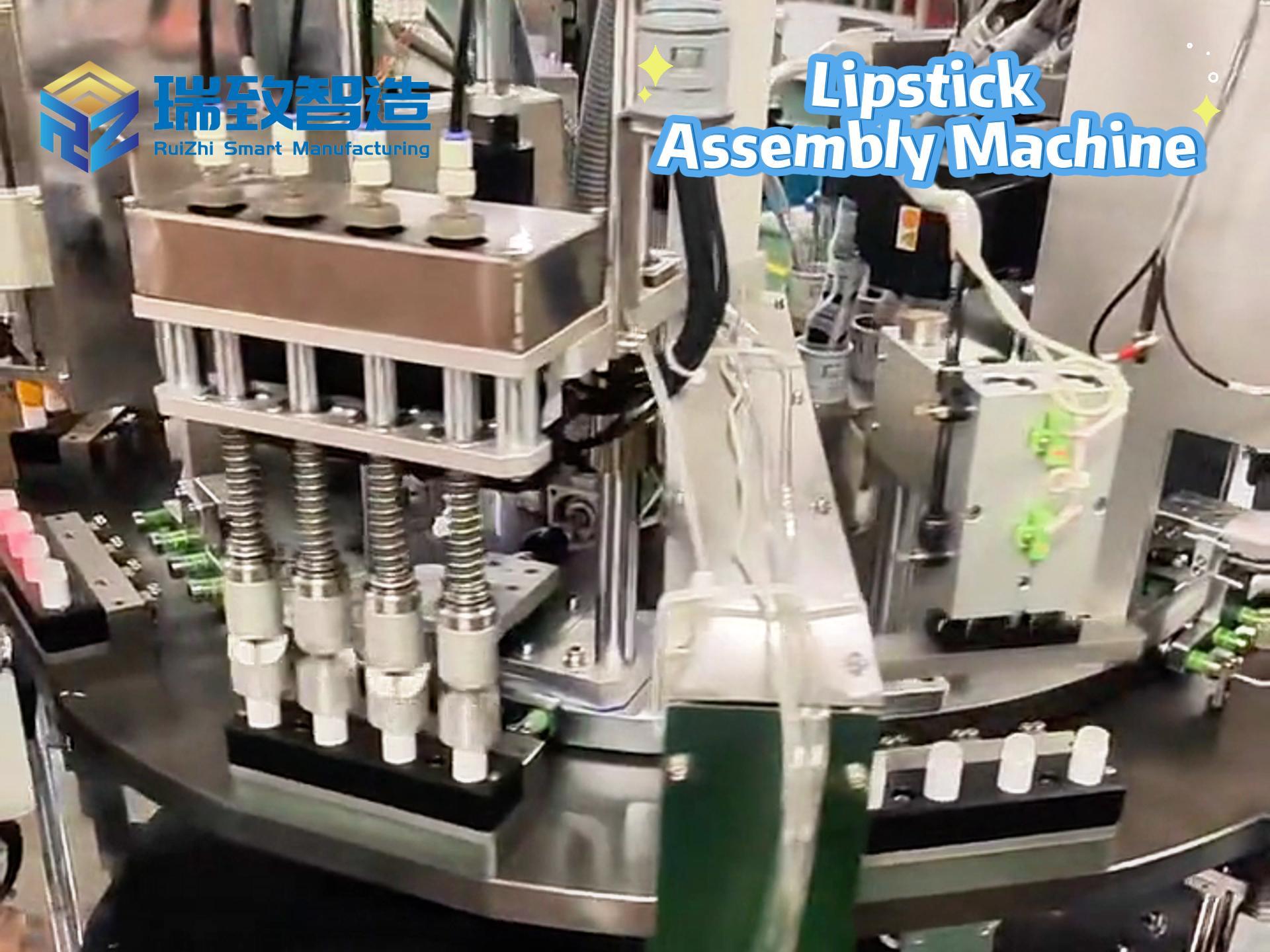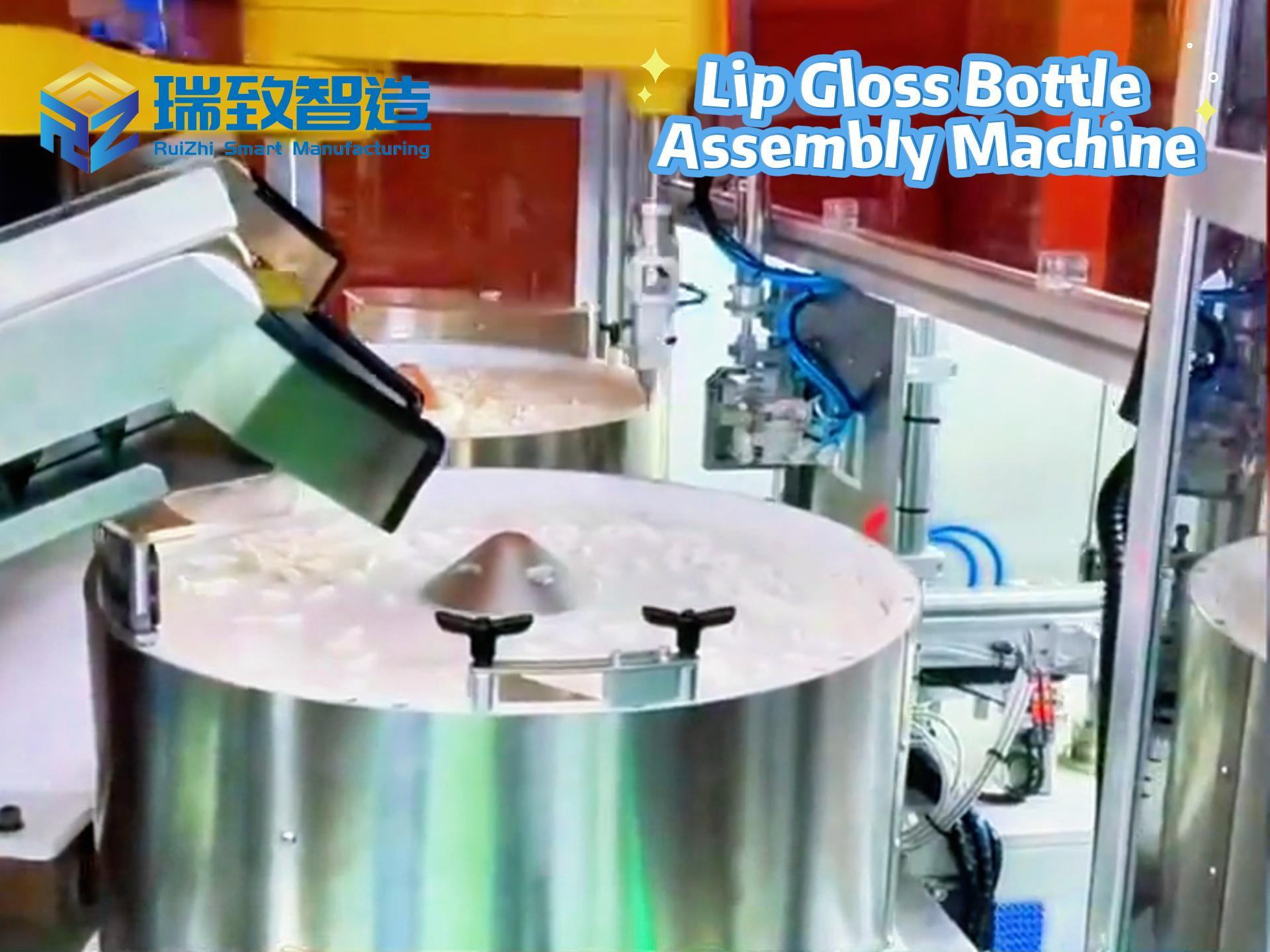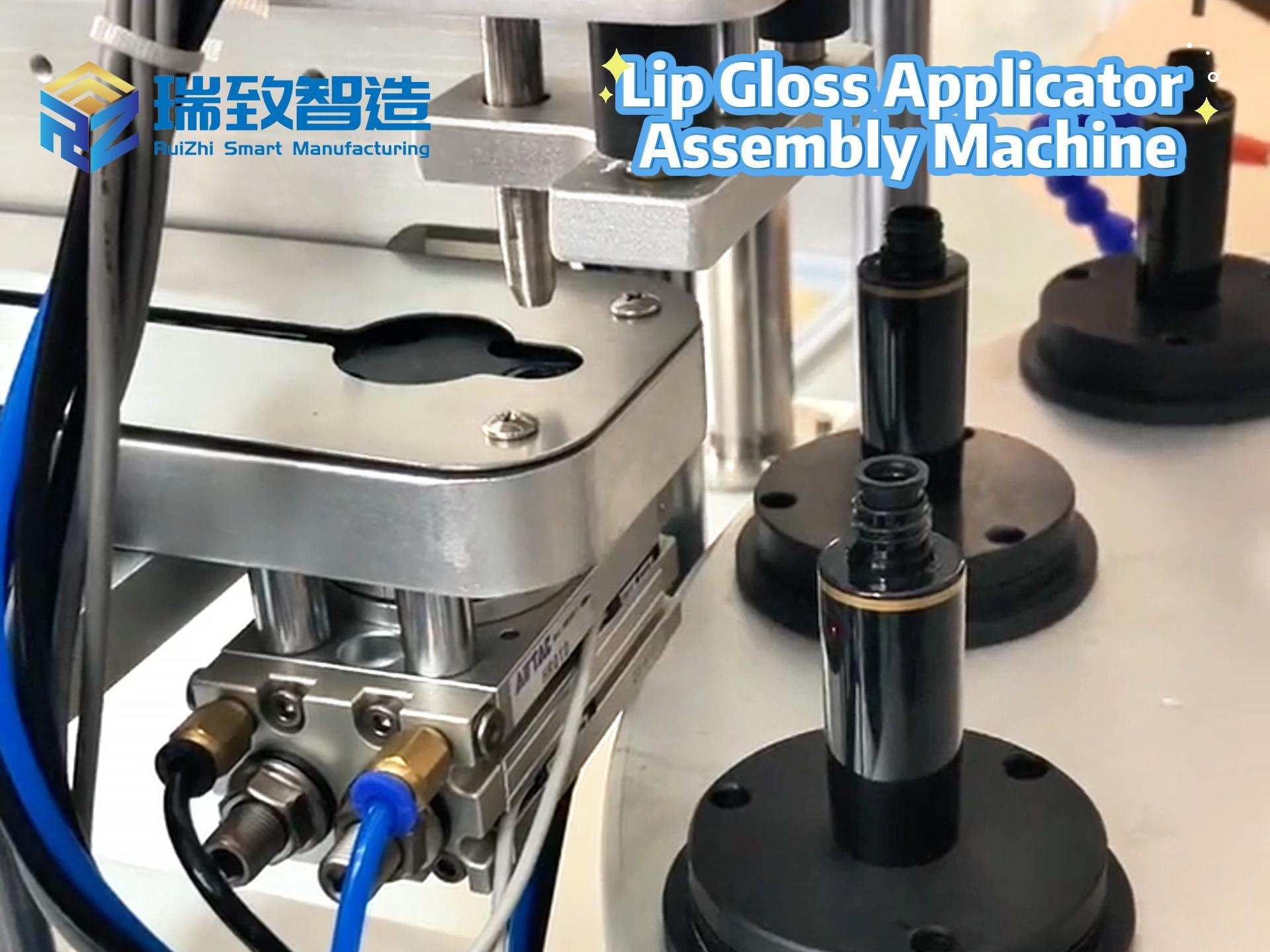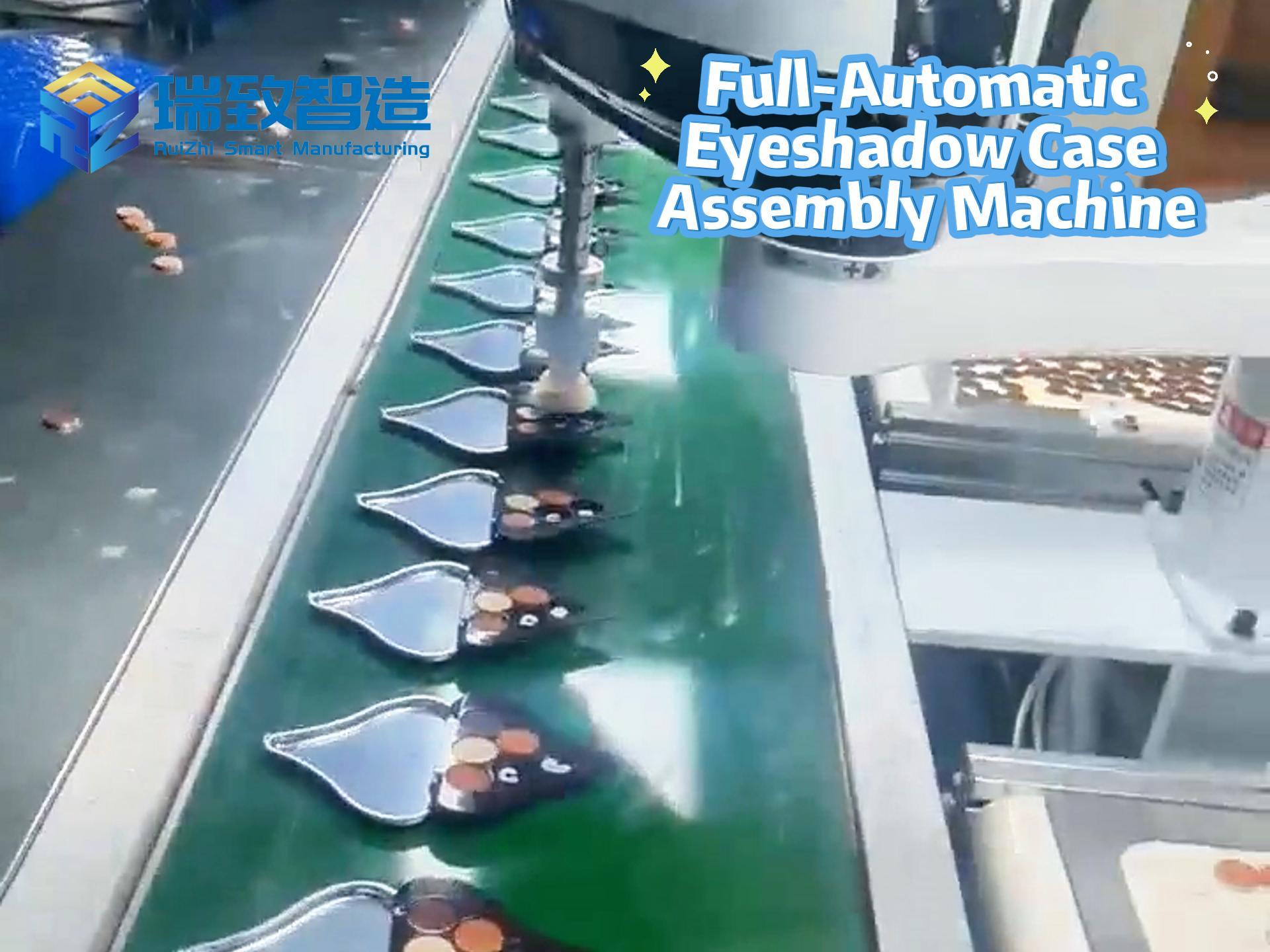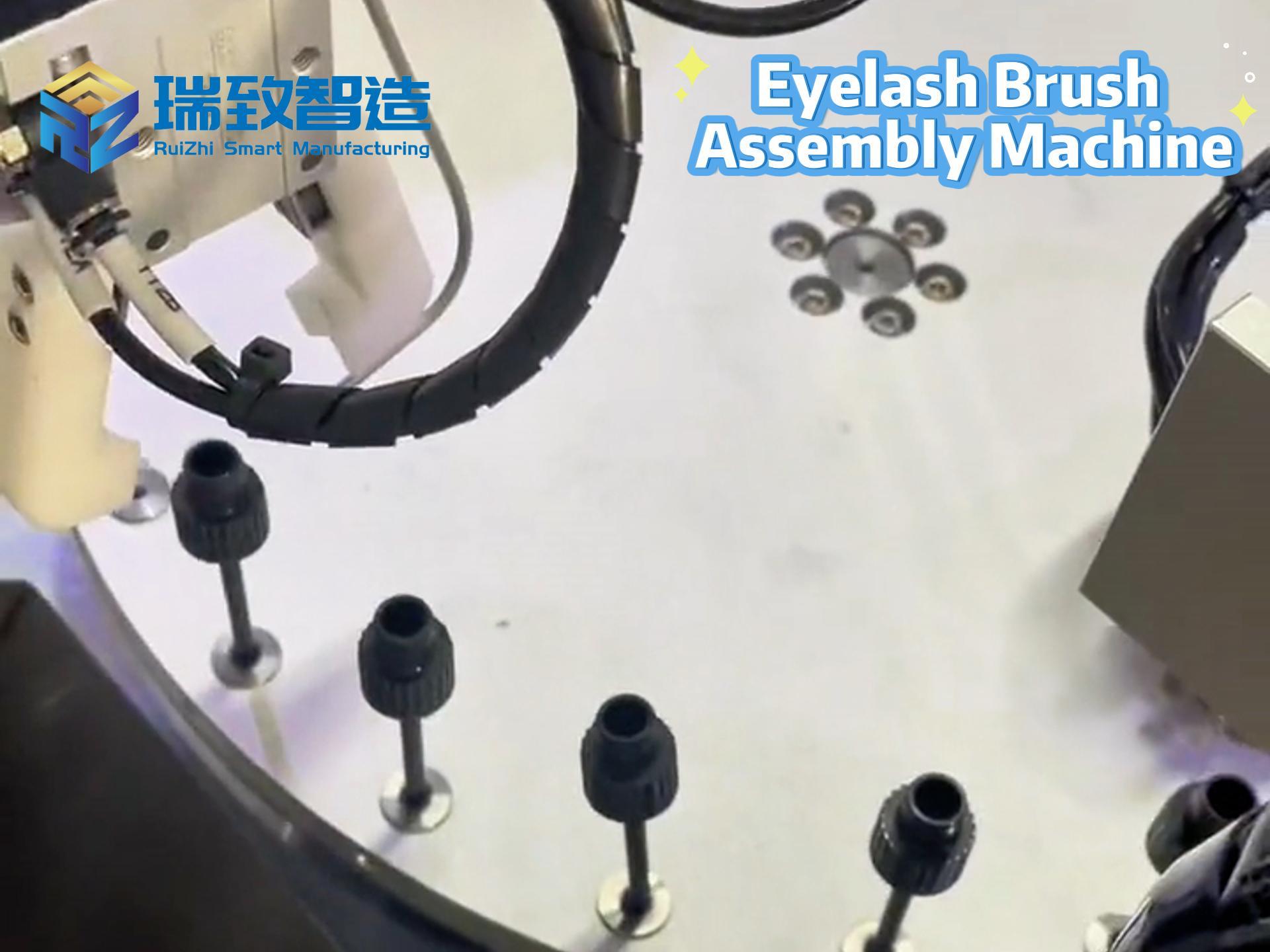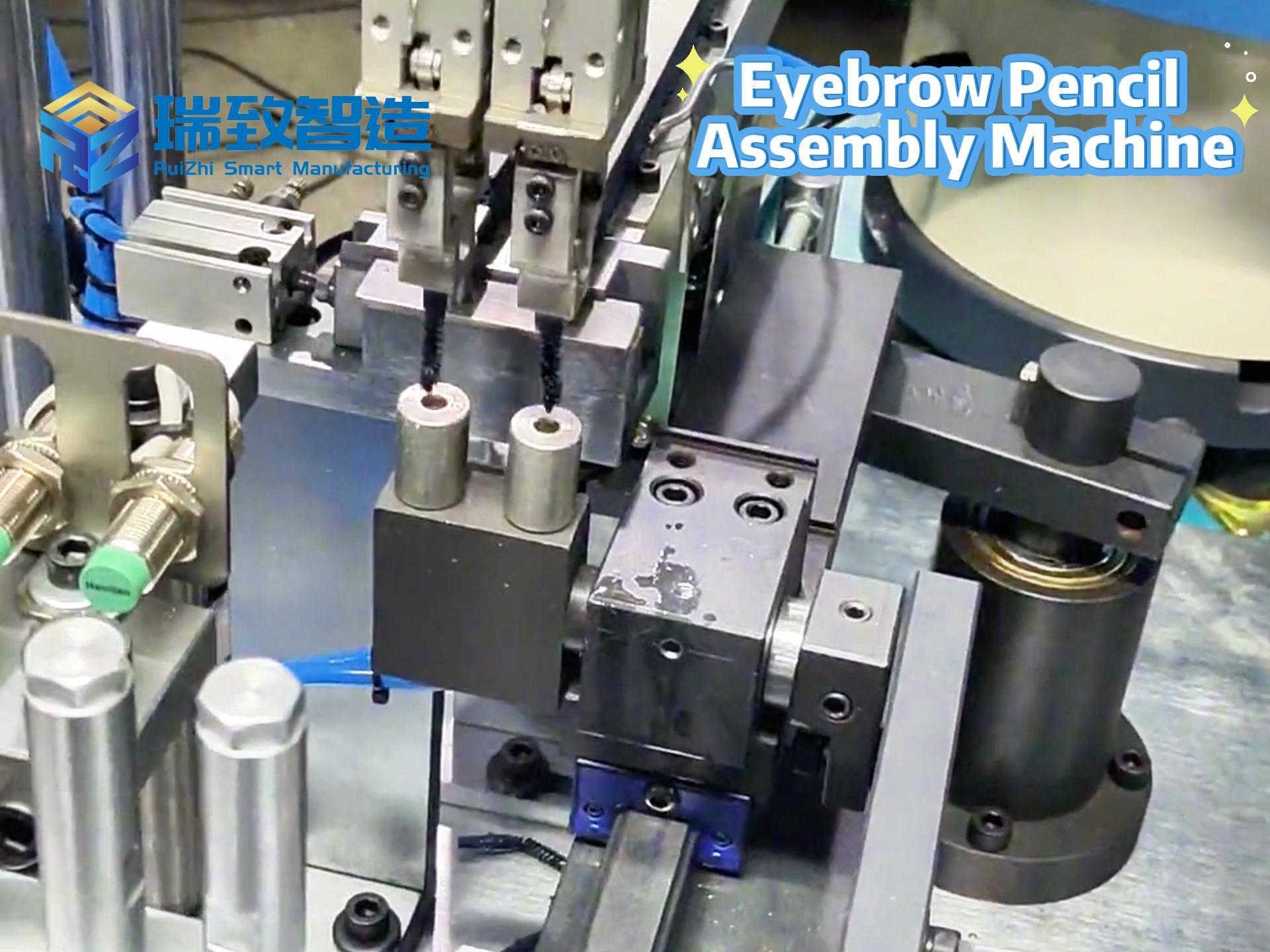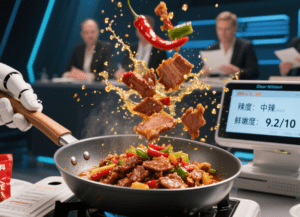
Core Support: Automatic Hardware Part Feeding And Assembly System Ensures Robots’ Precise Operation
After fierce competition, 30 cooking robot teams from across China won awards including the Special Prize, First Prize, Second Prize, as well as comprehensive and special awards like the Creative Cuisine Award and Tasty Cuisine Award. Notably, the precise operation of cooking robots cannot do without the technical support of Automatic Hardware Part Feeding and Assembly — through automated feeding, precision assembly, and real-time inspection, this system ensures the consistency and stability of core robot components (such as robotic arm transmission parts and heat control modules). It provides a hardware foundation for the robots to achieve precise temperature control and efficient stir-frying during the competition, and also serves as a key link in promoting the large-scale mass production of cooking robots.
Event Overview: High-Level, Large-Scale Participation from Government, Enterprises and Associations
On August 22, the 1st China Cooking Robot Competition & Capital Shared Central Kitchen Industry Summit, co-hosted by the China National Food Industry Association and the People’s Government of Pinggu District, Beijing, was held at the Beijing Jinhai Lake International Convention and Exhibition Center. 30 cooking robot teams from all over China competed fiercely, and awards including the Special Prize, First Prize, Second Prize, Creative Cuisine Award, and Tasty Cuisine Award were presented. More than 1,200 participants attended the event, including leaders and experts from the Ministry of Industry and Information Technology (MIIT), the National Health Commission (NHC), the Ministry of Agriculture and Rural Affairs, as well as representatives from central kitchen enterprises, food ingredient companies, and intelligent kitchen appliance enterprises. Ma Peihua, Vice Chairman of the 12th National Committee of the Chinese People’s Political Consultative Conference (CPPCC), attended the opening ceremony. Wang Qi, Deputy Secretary of the Party Committee and Vice President of the China National Food Industry Association, delivered a welcome speech, and Xu Jian, Deputy Secretary-General of the association, also participated in the event.
Competition Scene: Impressive Robot Cooking Show, Hardware System Guarantees Stable Quality
At 9:30 a.m., as Vice Chairman Ma Peihua announced the opening of the “1st China Cooking Robot Competition”, 30 cooking robot teams selected nationwide swung into action, making the competition venue lively. The audience was amazed by the robots’ precise knife skills, heat control, and innovative dish designs. Some robots cooked dishes with a rich “wok hei” (the smoky flavor from stir-frying in a hot wok); others demonstrated astonishing cooking speed, dazzling the onlookers. The stable and efficient operation of these robots is attributed not only to optimized software algorithms but also to the standardized assembly of core hardware by the Automatic Hardware Part Feeding and Assembly system — it can control the assembly error of parts such as robotic arm joints and sensors to the micrometer level, avoiding cooking deviations caused by insufficient hardware precision and ensuring the stability of dish quality during the competition.
Competition Format: Dual-Track Competition, Balancing Standards and Creativity
The 1st China Cooking Robot Competition set up two competition tracks: the “Standard Dish Package Challenge” and the “Creative Dish Challenge”. The “Standard Dish Package Challenge” featured three dishes — Kung Pao Chicken, Spicy Shredded Potatoes, and Hunan-style Sautéed Pork with Chili. The “Creative Dish Challenge” required teams to cook using local ingredients, competing in cooking precision, dish quality, and innovation.
Fairness Guarantee: Multi-Dimensional Evaluation + On-Site Supervision to Ensure Fair Results
To ensure the objectivity and fairness of the competition, the judges consisted of a professional group (including smart manufacturing experts and Chinese culinary masters) and a social group (including well-known actor Yin Xiaotian). Notaries and lawyers were invited to supervise the event on-site.
Association Statement: Wang Qi Proposes Three Measures to Jointly Build the “Pinggu Model”
In his speech, Wang Qi, Deputy Secretary of the Party Committee and Vice President of the China National Food Industry Association, stated that shared central kitchens are an emerging force in the food processing industry and a core carrier for driving agricultural modernization upstream, restructuring consumption scenarios downstream, and promoting the upgrading of the food industry. The China National Food Industry Association will collaborate with Pinggu District in three aspects to build a leading national central kitchen industrial cluster and create the “Pinggu Model” for shared central kitchens:
Co-host intelligent cooking events integrating “technical competition, scenario implementation, and industrial investment promotion”;
Promote the construction of a standard system for the Capital Shared Central Kitchen;
Jointly establish the “Capital Shared Central Kitchen Industry Alliance” to build an industrial ecosystem for resource sharing.
Regional Development: Pinggu’s Impressive Economic Growth, Building a Food Nutrition and Health Industry Chain
The Capital Shared Central Kitchen Industry Summit, themed “Fresh Food Intelligent Manufacturing · Standardized Future”, focused on the development of the capital’s shared central kitchen industry. Tang Hailong, Secretary of the CPC Pinggu District Committee of Beijing, introduced in his speech that Pinggu achieved an 11% GDP growth rate and a 26.4% growth rate in fixed asset investment in the first half of this year, maintaining a sound momentum of high-quality development. Pinggu is building the “Agricultural Zhongguancun Modern Food Nutrition Valley” and accelerating the construction of a food nutrition and health industry chain. It has gathered 51 food enterprises including Kang’an Lifeng and Zixingyuan. In the future, it will build four major bases: an integrated innovation base for food nutrition technology, a transformation base for food nutrition technology achievements, a headquarters base for food nutrition technology enterprises, and a supply base for safe and nutritious food.
Key Achievement ①: Establishment of an Expert Committee to Contribute to Industrial Development
The conference released a series of key achievements. First, it announced the establishment of the Capital Shared Central Kitchen Expert Committee. Ren Fazheng, Guo Lanping, Chen Xiangning, Gao Lihong, and Huang Shaoyang were appointed as experts of the committee, and Di Tao, Deputy Secretary of the CPC Pinggu District Committee and District Mayor of Pinggu, presented appointment letters to the experts.
Key Achievement ②: Launch of the Industry Alliance to Connect Upstream and Downstream Resources
Witnessed by the participating leaders and guests, the China National Food Industry Association, the Beijing Municipal Bureau of Economy and Information Technology, the People’s Government of Pinggu District, and co-construction units including Luhua, Qianxihe, Shounong, Shuhai, JD.com, Kang’an Lifeng, and Zixingyuan jointly launched the “Capital Shared Central Kitchen Industry Alliance”. The establishment of the alliance will connect upstream and downstream resources of the capital’s shared central kitchen industry, helping Pinggu District build and implement the “Capital Shared Central Kitchen Industrial Cluster”.
Key Achievement ③: Landing of the World’s First Cooking Robot Exhibition Hall, Hardware System Supports Industrialization
The conference announced that the world’s first “World Cooking Robot Exhibition Hall” will be located in Pinggu, injecting new vitality into the district’s development. In the future, Pinggu also plans to build a cooking robot industrial park. Through a series of initiatives, Pinggu is expected to become a global innovation hub and exhibition window for cooking robot technology. In the process of cooking robot industrialization, the Automatic Hardware Part Feeding and Assembly system will play a more important role — it can realize efficient mass assembly of core robot hardware, reduce production costs, provide key manufacturing support for Pinggu to build a cooking robot industrial cluster, and promote the “Pinggu Model” to move from technical demonstration to large-scale industrial implementation.
Keynote Speech ①: Yang Liu: Three Measures to Promote the Transformation of the Catering Industry
In the keynote speech session, Yang Liu, President of the China Cuisine Association, stated that the development of the catering industry is in urgent need of technological empowerment. By lowering the threshold for small and medium-sized catering enterprises, enhancing industrial resilience, and ensuring food safety, shared central kitchens have restructured the capital’s catering supply chain. The China Cuisine Association will promote industrial transformation through three measures: prioritizing standards, popularizing technology, and empowering platforms. These include developing the Guidelines for Food Labels in Central Kitchens of the Catering Industry and launching training courses on central kitchen operation and management, to support the construction of Pinggu District’s “three zones” through talent cultivation, standard development, digital transformation, and capital connection.
Keynote Speech ②: Ma Chunliang: Five Advantages of Integrating Cooking Robots with Central Kitchens
Ma Chunliang, Director of the National Technical Committee for Standardization of Food Quality Control and Management and former Director of the Food Production Department of the State Administration for Market Regulation, pointed out five advantages of promoting cooking robots and developing central kitchens from the perspective of in-depth integration of cooking robots and central kitchens:
Effectively improving the quality and safety of catering food;
Greatly enhancing catering operation efficiency;
Continuously meeting the needs of consumption upgrading;
Improving the nutritional level of catering food;
Gradually promoting the digital transformation of the catering industry.
Ma Chunliang emphasized that in the process of promoting the intelligent upgrading of the catering industry, we must always adhere to the bottom line of food safety, strictly abide by food safety laws, regulations, and standards, and ensure that intelligent upgrading, processing, and centralized distribution do not bring new food safety risks.
Keynote Speech ③: Zhao Fengjie: China’s Robot Industry Moves Towards Intelligence, “14th Five-Year Plan” for the Industry to Be Formulated
Zhao Fengjie, Director of the Intelligent Manufacturing Division of the First Equipment Department of MIIT, introduced the application prospects and current status of intelligent robots. He stated that the global robot industry has entered a new stage of intelligence, showing a vigorous development trend driven by both intelligent upgrading and large-scale application. China’s robot industry has grown from scratch, accelerating towards intelligence, high-endization, and systematization. At present, China has been the world’s largest industrial robot market for 12 consecutive years, with the proportion of new installed capacity exceeding 50% in each of the past three years. In the next step, MIIT will organize the formulation of the “14th Five-Year Plan” for the development of the intelligent robot industry, continue to promote collaborative research on the robot industry chain, and further carry out the “Robot +” application initiative.
Keynote Speech ④: Ma Ning: Shared Central Kitchens Need to Uphold the Safety Bottom Line and Improve the Nutrition High Line
Ma Ning, Director of the Standards Division of the Food Department of the NHC, put forward expectations for shared central kitchen enterprises from two aspects: “upholding the bottom line” and “raising the high line”. In terms of upholding the food safety bottom line, enterprises must consolidate their main responsibilities, strengthen the implementation and application of process standardization, and take standards as guidance to strictly control risks at the source and during the process. In terms of improving the nutrition and health high line, enterprises should base themselves on the characteristics of Chinese cuisine, improve the nutritional quality of dishes through rational ingredient matching and innovative cooking methods, and at the same time, combine the advantages of intelligent equipment such as cooking robots to optimize production processes, effectively retain nutrients, and promote the reduction of salt, oil, and sugar.
Competition Results: Multiple Enterprises Win Awards, Leaders Present Awards On-Site
As the core competitive part of the event, after nearly 3 hours of fierce competition, in the Standard Dish Package Challenge:
Shanghai Changshan Intelligent Technology Co., Ltd. won the Special Prize;
Jiangsu Guowei Intelligent Robot Co., Ltd., Zhuhai Youtezhichu Technology Co., Ltd., and Shenzhen Topband Co., Ltd. won the First Prize;
Henan Xike Intelligent Kitchen Appliance Co., Ltd., Shenzhen Buting Technology Co., Ltd., Suzhou Pengman Technology Co., Ltd., Tineco Intelligent Technology Co., Ltd., Changsha
Zhangkonghuohou Technology Co., Ltd., and Sichuan Xiongmao Dashu Technology Co., Ltd. won the Second Prize.
Li Chunsheng, Deputy Director of the Agriculture and Rural Affairs Committee of the 13th National People’s Congress Standing Committee, Wang Xiaoju, Secretary of the Party Committee of the Institute of Food and Nutrition Development of the Ministry of Agriculture and Rural Affairs, Tang Hailong, Secretary of the CPC Pinggu District Committee, Yang Liu, President of the China Cuisine Association, and Di Tao, District Mayor of Pinggu, presented awards to the winning enterprises respectively.
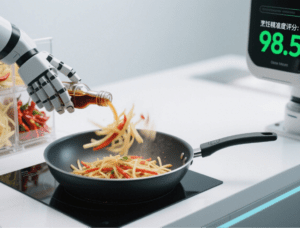
Exchange and Discussion: Focusing on Key Links of the Industry Chain, Discussing Industrial Development
The conference also held multi-level exchange activities. Participants conducted in-depth discussions on various links of the shared central kitchen industry chain, such as smart food supply models, industrial standardization, full-chain food safety management, supply chain optimization, food nutrition, as well as policy orientation and industry supervision.
Regional Planning: Peng Shi Clarifies Three Key Development Priorities of Pinggu, Focusing on Industrial Ecology
Peng Shi, Vice District Mayor of Pinggu District, focused on introducing Pinggu’s cooking robot industry and the capital’s shared central kitchen industry. He stated that as an ecological conservation area and a major agricultural district in the capital, Pinggu is gathering wisdom and efforts to accelerate the construction of the “Agricultural Zhongguancun Modern Food Nutrition Valley” and make every effort to promote the construction of a “intensive, standardized, digital, and green” capital shared central kitchen. In the next step, Pinggu will focus on the following three aspects:
Build a central kitchen ecological system to lay a solid foundation for industrial development;
Focus on the cooking robot industry to create a characteristic development engine;
Strengthen the support and guarantee system to optimize the industrial development environment.
Enterprise Participation: Shounong Group Expresses Its Position to Empower Central Kitchens with High-Quality Ingredients
As the main carrier, main force, and main channel for the capital’s food supply guarantee services, Zong Yi, Deputy General Manager of Shounong Group, shared views on supporting the capital’s shared central kitchens with high-quality ingredients from three aspects:
Based on the core functions of the capital, focus on the main business of agricultural food;
Build a food safety foundation to ensure the supply of high-quality ingredients;
Deepen the R&D of livestock and poultry breeding, and empower product intelligent manufacturing with technology.
In the future, Shounong will take the opportunity of Pinggu District’s vigorous promotion of the capital’s shared central kitchen innovation zone, embrace technological upgrading with an open attitude, grasp the core of intelligent manufacturing, continuously optimize the ingredient supply system, and improve the quality of ingredient supply.
Industry Report: Feng Quanpu Interprets Development Trends, Chinese Cooking Robots Expected to Enter Overseas Markets
Feng Quanpu, Secretary-General of the National Food Think Tank, interpreted the World Cooking Robot Industry Development Report on-site. He believes that the Chinese cooking robot market is in a stage of rapid development from early exploration, with a high compound annual growth rate. This growth is mainly driven by the increasing demand for automated upgrading in the catering industry, the standardized operation of central kitchens and chain catering, as well as the continuous maturity of technology and the decline in equipment costs. In the future, the R&D of cooking robots will focus on intelligence, lightweight, and standardization. The global Chinese food supply chain is accelerating its formation, and Chinese cooking robots are expected to go global together with standardized seasonings and standard dish packages, becoming a new track for the export of “intelligent cooking equipment + Chinese food supply chain”.
Sub-Forum ①: Release of Procurement Demand and Pilot Programs, Enterprise Roadshows and Exchanges
At the conference’s sub-forum — the Central Kitchen Technology, Capital, Production and Sales & National Cooking Robot Exchange Conference:
Qianxihe Group took the lead in releasing the demand for purchasing 1,000 cooking robots;
Peng Shi, Vice District Mayor of Pinggu District, released a pilot program for applying cooking robots in scenarios such as Pinggu’s government canteens, primary and secondary schools, and nursing homes;
More than 20 cooking robot enterprises conducted on-site roadshows and interactive reviews.
Sub-Forum ②: Visiting the Smart Logistics Valley, Discussing Supply Chain Collaboration
Logistics is the lifeline of food enterprise operations and a core link in supply chain collaboration, running through the entire chain from raw material supply to end consumer. Therefore, the conference’s sub-forum — the Smart Supply Chain Empowers High-Quality Industrial Development Forum — specially organized representatives from ingredient, catering, and supply chain enterprises to visit the Dongjiu Xinyi Smart City Logistics Valley and hold a symposium. More than 40 people attended the exchange, including Sun Yuxiao, Vice President of the Distributor Working Committee of the China National Food Industry Association and Executive Deputy Editor-in-Chief of China Food Industry magazine; Song Kuiyun, Deputy Secretary of the Party Committee and General Manager of China National Packaging Corporation; Gao Weijun, Deputy Secretary of the Party Committee and Secretary of the Disciplinary Committee of China National Packaging Corporation; Feng Quanpu, Secretary-General of the National Food Think Tank; Zhang Zhe, Operation Director of Shuhai Supply Chain; Xuan Minghai, Executive President of Sundiro Food; and Qin Haibin, Secretary of the Party Committee of Mafang Town, Pinggu District.
Logistics Support: Pinggu Gathers Key Logistics Enterprises to Build a Full-Chain Distribution System
At present, Pinggu has gathered a number of key logistics enterprises including JD.com, Cainiao, Prologis, and Dongjiu Xinyi. This year, it will complete the construction of 3.1 million square meters of high-standard warehouses and has been selected as a national logistics hub bearing city of the land-port type. This provides strong logistics support for building a full-chain distribution system of “field to food processing to cold chain logistics” and improving the resilience and safety level of the industrial chain and supply chain.
Participant Lineup: Representatives from Government, Industry, Academia and Research Gather to Celebrate the Industrial Event
Leaders, experts, and entrepreneurs who participated in the event also included: Gao Yanmin, former Director of the Consumer Goods Department of MIIT; Zhuzewen, Deputy Director of the Agricultural Product Quality and Safety Center of the Ministry of Agriculture and Rural Affairs; Liu Zhaoping, Deputy Director of the National Food Safety Risk Assessment Center; Guo Qingwu, former Deputy Secretary of the Party Committee of the Food Evaluation Center of the State Administration for Market Regulation; Zhang Jianhua, Secretary of the Party Committee of the China Rural Special Technology Association; Tong Lin, Vice President and Secretary-General of the China Cuisine Association; Guo Lanping, Director of the Institute of Chinese Materia Medica, China Academy of Chinese Medical Sciences; Zhang Minyuan, former Deputy Director of the Personnel Department of the NHC and Executive Vice President of the Food Safety and Nutrition Professional Committee of the China Health Management Association; Duan Shen


